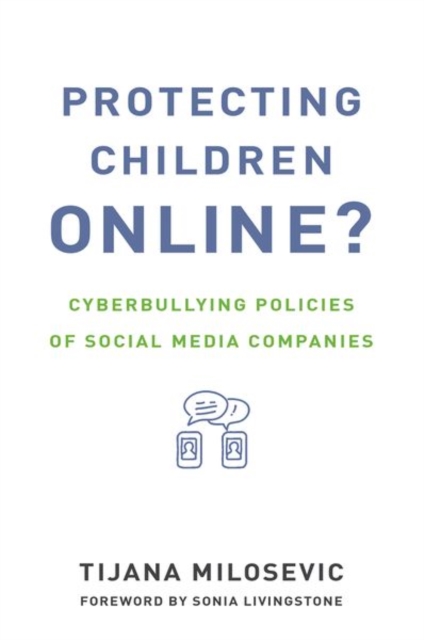
Protecting Children Online? : Cyberbullying Policies of Social Media Companies Hardback
by Tijana (Postdoctoral researcher, University of Oslo) Milosevic
Part of the Information Society Series series
Hardback
Description
A critical examination of efforts by social media companies-including Facebook, Twitter, Snapchat, and Instagram-to rein in cyberbullying by young users. High-profile cyberbullying cases often trigger exaggerated public concern about children's use of social media.
Large companies like Facebook respond by pointing to their existing anti-bullying mechanisms or coordinate with nongovernmental organizations to organize anti-cyberbullying efforts.
Do these attempts at self-regulation work? In this book, Tijana Milosevic examines the effectiveness of efforts by social media companies-including Facebook, Twitter, YouTube, Snapchat, and Instagram-to rein in cyberbullying by young users.
Milosevic analyzes the anti-bullying policies of fourteen major social media companies, as recorded in companies' corporate documents, draws on interviews with company representatives and e-safety experts, and details the roles of nongovernmental organizations examining their ability to provide critical independent advice.
She draws attention to lack of transparency in how companies handle bullying cases, emphasizing the need for a continuous independent evaluation of effectiveness of companies' mechanisms, especially from children's perspective.
Milosevic argues that cyberbullying should be viewed in the context of children's rights and as part of the larger social problem of the culture of humiliation. Milosevic looks into five digital bullying cases related to suicides, examining the pressures on the social media companies involved, the nature of the public discussion, and subsequent government regulation that did not necessarily address the problem in a way that benefits children.
She emphasizes the need not only for protection but also for participation and empowerment-for finding a way to protect the vulnerable while ensuring the child's right to participate in digital spaces.
Information
-
Available to Order - This title is available to order, with delivery expected within 2 weeks
- Format:Hardback
- Pages:296 pages, 3 b&w illus.; 6 Illustrations, unspecified
- Publisher:MIT Press Ltd
- Publication Date:02/02/2018
- Category:
- ISBN:9780262037099
Information
-
Available to Order - This title is available to order, with delivery expected within 2 weeks
- Format:Hardback
- Pages:296 pages, 3 b&w illus.; 6 Illustrations, unspecified
- Publisher:MIT Press Ltd
- Publication Date:02/02/2018
- Category:
- ISBN:9780262037099










